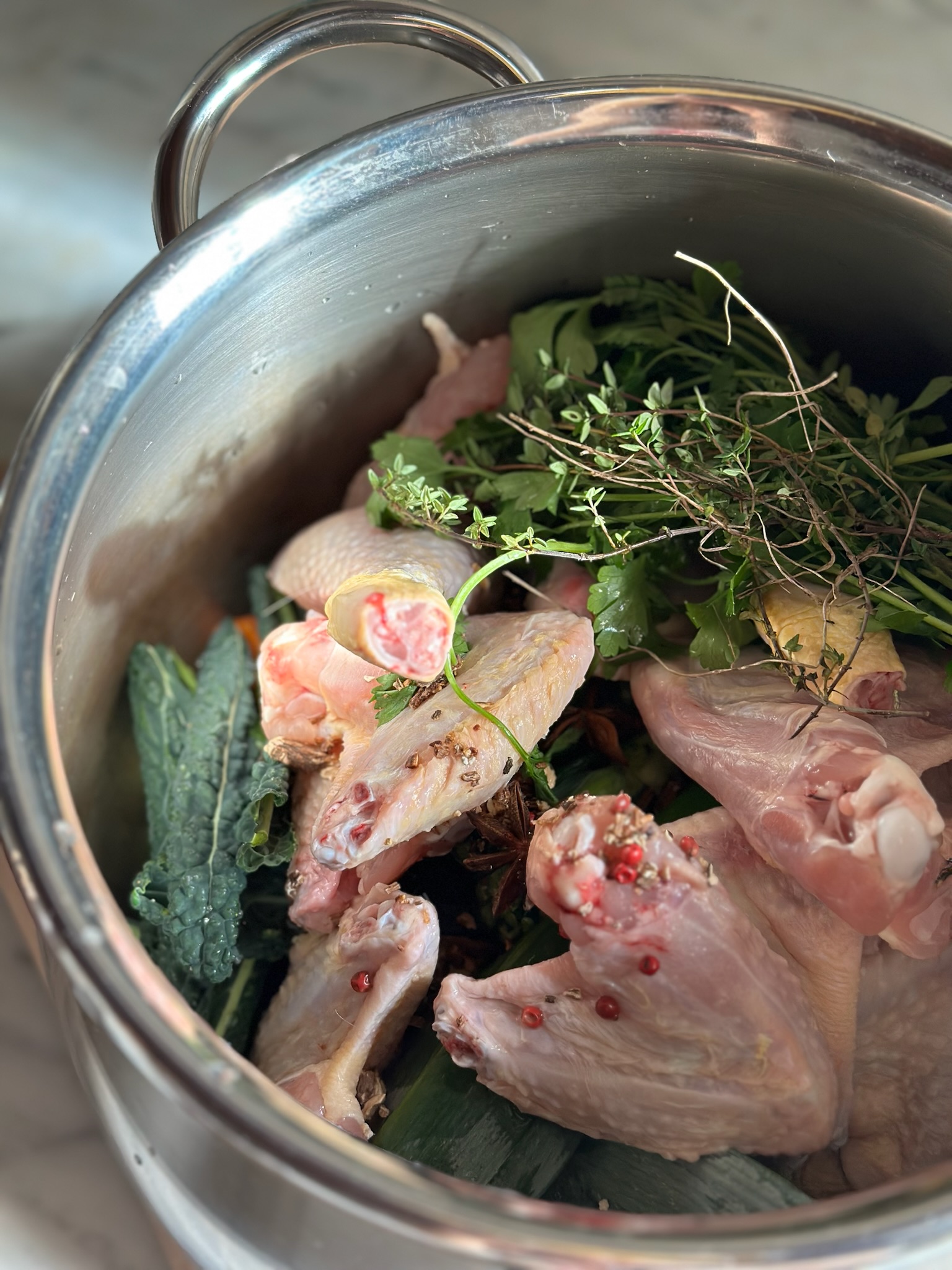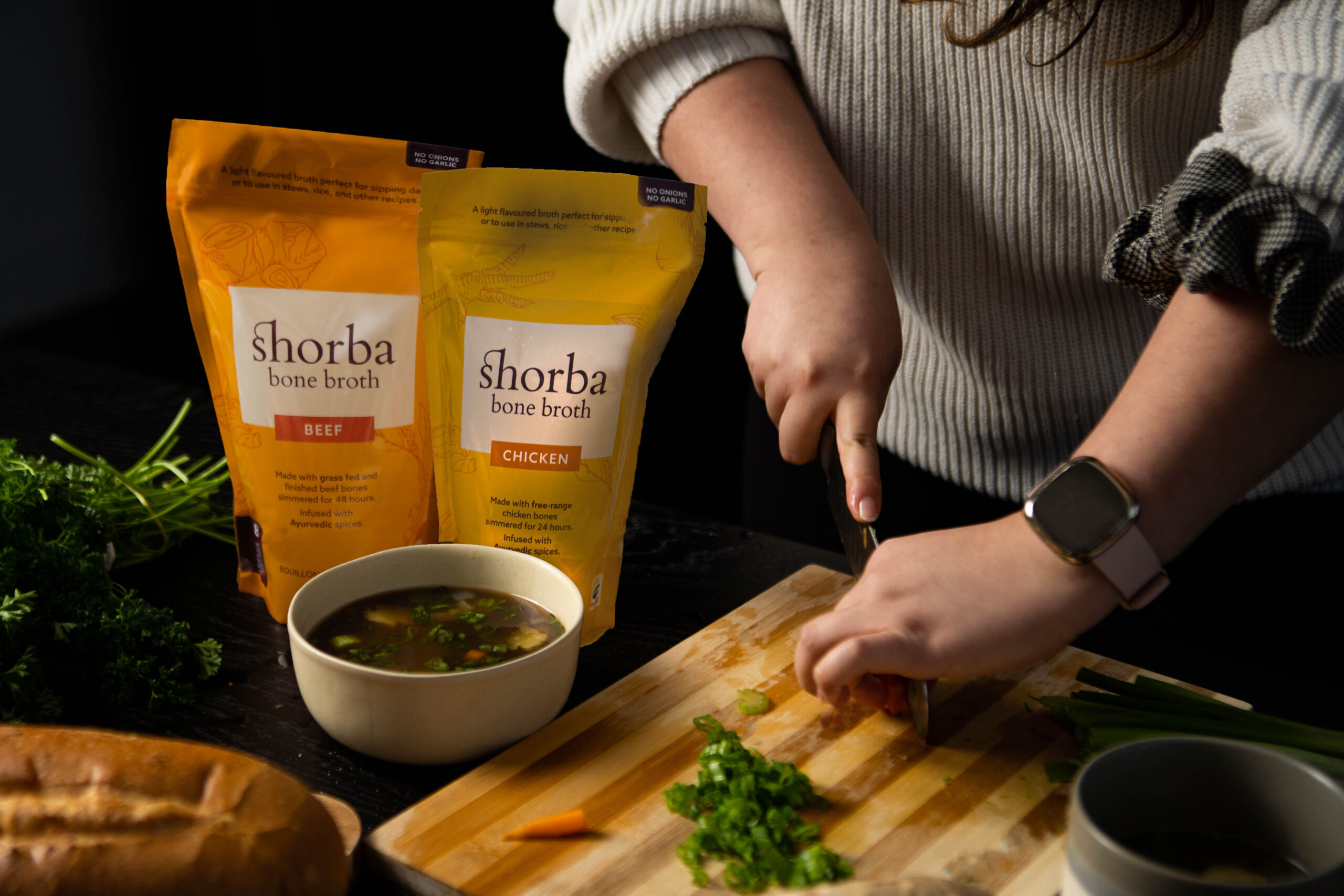5 Simple Recipes Using chicken bone broth for Babies
5 Simple Recipes Using chicken bone broth for Babies
Blog Article
The aRelevance of Healthy And Balanced Food: Why Bone Broth Is a Fantastic Selection for Babies
When it comes to your infant's nutrition, every option issues. Bone broth sticks out as a nutrient-dense option, using important nutrients that support development and development. Its abundant structure not only aids digestion yet also enhances the body immune system. Understanding just how to integrate this functional food into your infant's diet regimen can establish the stage for healthy and balanced eating practices. So, what are the very best ways to introduce bone broth to your little one?
Nutritional Conveniences of Bone Broth for Newborns
When you introduce bone broth to your infant's diet, you're supplying a nutrient-dense food that uses various health and wellness advantages. Packed with crucial minerals and vitamins, bone broth has calcium, magnesium, and phosphorus, which sustain your baby's expanding bones. It's additionally rich in collagen, helping in the growth of healthy skin, joints, and connective cells.
Furthermore, bone broth is an excellent resource of amino acids like glycine and proline, which play a significant role in general growth and muscle development. These nutrients aid promote a strong body immune system, establishing a strong structure for your infant's health and wellness.
In addition, bone broth is easy to absorb, making it a mild choice for your little one. By incorporating this wholesome food right into their meals, you're guaranteeing they receive crucial nutrients needed for their total well-being. So, go in advance and make bone broth a staple in your baby's diet plan!
Just How Bone Broth Supports Food Digestion
Bone broth is loaded with vital nutrients that can truly profit your baby's digestion. It promotes digestive tract health and assists with nutrient absorption, making it a wonderful addition to their diet regimen. By including bone broth, you're setting the stage for a healthier digestive system.
Nutrient-Rich Make-up
One of the most nutrient-rich foods you can introduce to your infant's diet plan is bone broth, which is loaded with vital minerals and amino acids that support healthy food digestion. Rich in collagen, bone broth assists reinforce your child's gut cellular lining, making it less complicated for their body to take in nutrients. By incorporating bone broth into your baby's dishes, you're providing them a wholesome food that nurtures their digestion system effectively.
Advertises Intestine Health And Wellness
As you introduce bone broth right into your infant's diet, you'll locate it not just nourishes but additionally promotes digestive tract health successfully. Rich in gelatin, bone broth aids relieve the digestive system, lowering swelling and supporting a healthy and balanced intestine cellular lining. Additionally, the amino acids found in bone broth, such as glycine, aid in food digestion and can aid protect against common tummy troubles.
Aids Nutrient Absorption
Introducing bone broth not only sustains gut health yet additionally plays a substantial role in aiding vitamins and mineral absorption. When you give your baby bone broth, you're offering a rich source of minerals and amino acids that boost their digestive processes. The jelly in bone broth assists to soothe the digestive tract lining, improving its ability to absorb important nutrients. This implies that crucial nutrients from other foods are much more efficiently used by your child's growing body. In addition, bone broth contains collagen, which sustains the growth of healthy and balanced tissues and organs. By incorporating this nutrient-dense liquid into your baby's diet plan, you're ensuring they get the optimum gain from their dishes, promoting overall health and wellness and well-being.
Enhancing the Body Immune System With Bone Broth

In addition, bone broth has glycosaminoglycans, like glucosamine, that can enhance the body immune system's capacity to function properly. This means it not just assists in building defenses but additionally aids in recuperation from diseases. By incorporating bone broth right into your baby's diet regimen, you're offering a natural source of nutrition that advertises health. Take into consideration making bone broth a staple in your baby's meals, as it can play a crucial function in their immune wellness and advancement.
Easy Ways to Incorporate Bone Broth Into Infant's Diet
Integrating bone broth into your baby's diet can be straightforward and gratifying. You can likewise use bone broth as a base for soups or stews that you prepare for the household, guaranteeing your infant obtains a taste of tasty, healthy meals.
One more option is to serve bone broth by itself. Cozy it up and offer it in a sippy cup or tiny dish-- it's an excellent way YOURURL.com to present brand-new tastes. If your infant enjoys grains, consider cooking rice or quinoa in bone broth as opposed to water for additional nutrients. You can freeze bone broth in ice dice trays, making it very easy to include a dice to various meals whenever you want. These techniques will help your child gain the benefits of bone broth easily!
Homemade vs. Store-Bought Bone Broth: What to Select
Which is better for your baby: homemade or store-bought bone broth? Homemade bone broth uses you complete control over the active ingredients. You can pick top quality bones, organic veggies, and natural herbs, guaranteeing your baby obtains the most nutrients without ingredients or preservatives. And also, making it in the house can be a fulfilling experience, enabling you to bond with your infant while preparing wholesome food.
On the other hand, store-bought alternatives are hassle-free and save you time. They frequently have preservatives and might not match the depth of taste and nourishment you get from homemade broth. If you select store-bought, seek brand names that are natural and without additives.
Eventually, if you have the moment and resources, homemade bone broth is the superior option for your infant's wellness. If you're brief promptly, select a top quality store-bought choice as a back-up.
Age-Appropriate Bone Broth Offering Tips
As your child expands, it's crucial to tailor bone broth serving ideas to their developmental phase. For babies around 6 months, start with a couple of does of watered down bone broth (bone broth for pregnancy).
By the time your little one is around a year old, consider supplying bone broth as a standalone drink or mixing it right into soups and stews. Simply make certain to maintain the broth reduced in sodium.
Other Healthy And Balanced Foods to Couple With Bone Broth for Babies
When you're wanting to boost the nutritional value of bone broth for your baby, think about matching it with nutrient-dense veggies like carrots and spinach. Whole grain options, such as quinoa or brownish rice, can additionally include structure and fiber. Furthermore, integrating healthy protein resources like shredded chicken or lentils will round out the meal well.

Nutrient-Dense Veggies
Nutrient-dense vegetables are a superb addition to bone broth for infants, improving both flavor and nutrition. Incorporating veggies like carrots, spinach, and pleasant potatoes can enhance the nutrient material of your broth. Carrots give beta-carotene for healthy and balanced vision, while spinach is loaded with iron and calcium, vital for development. Pleasant potatoes include natural sweetness and are abundant in fiber, assisting food digestion.
You can easily mix these veggies right into the broth or offer them as soft, cooked pieces along with it. This not only presents new flavors however likewise urges your youngster to appreciate a variety of nutrients. By matching nutrient-dense veggies with bone broth, you're laying the structure for a healthy diet plan right from the beginning.
Entire Grain Options

Healthy Protein Sources
Bone broth pairs wonderfully with various healthy protein resources, even more boosting your baby's diet plan. Attempt visit this page including soft, prepared lentils; they're nutrient-dense and packed with healthy protein. You can also mix in shredded chicken or turkey, which are simple for your youngster to digest. If you're trying to find plant-based options, think about mashed tofu or pureed chickpeas-- both supply outstanding protein without frustrating tastes. Eggs, when introduced securely, are an additional excellent choice; they're versatile and filled with nutrients. Ultimately, mixing in some well-cooked quinoa can add a wonderful structure and extra protein. By combining these healthy and balanced protein sources with bone broth, you're offering your baby a well balanced, beneficial dish that supports their growth and advancement.
Frequently Asked Questions
Can Bone Broth Cause Sensitive Reactions in Infants?
Yes, bone broth can cause allergies in infants, particularly if they're sensitive to particular components. Constantly consult your pediatrician before introducing new foods and screen for any kind of signs of allergies after feeding.
Just How Should Bone Broth Be Kept for Babies?
You ought to store bone broth in airtight containers, either in the refrigerator for as much as a week or in the freezer for approximately three months. organic bone broth. Constantly thaw it correctly prior to offering to your baby
Is It Safe to Offer Bone Broth to Premature Infants?
It's necessary to consult your pediatrician before introducing bone broth to premature babies. They'll analyze your infant's specific wellness demands and ensure it's risk-free, considering their unique nutritional needs and developing phase. Constantly prioritize experienced recommendations.
What Are the Signs of Intolerance to Bone Broth in Babies?
When introducing bone broth, expect indications like fussiness, rash, diarrhea, or throwing up. If your baby reveals any of these responses, it's best to speak with a doctor prior to remaining to use it.
Can Bone Broth Be Utilized as a Dish Replacement for Infants?
No, you should not make use of bone broth as a meal replacement for babies. It lacks essential nutrients required for their development. Rather, include it into their diet together with well balanced dishes for included nutrients and flavor.
Report this page